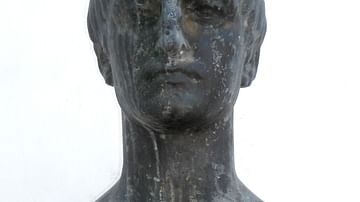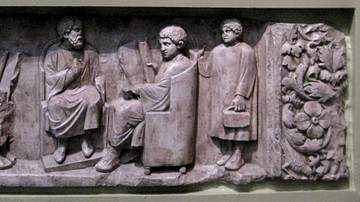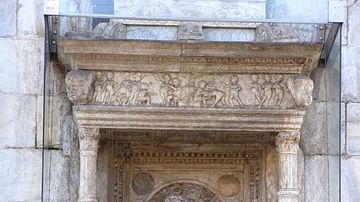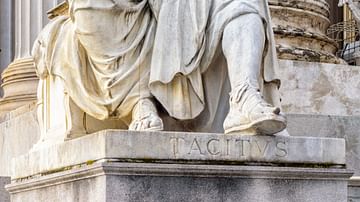Search
Search Results

Definition
Aspasia of Miletus
Aspasia of Miletus (l. c. 470-410/400 BCE) is best known as the consort of the great Athenian statesman Pericles. Her life story has always been given in the shadow of Pericles' fame, but she was a woman of great eloquence and intelligence...

Definition
Marcus Annaeus Lucanus
Marcus Annaeus Lucanus (39-65 CE), grandson of Seneca the Elder and nephew of Seneca the Younger, was a Roman statesman and Latin poet. Born in Corduba, he came to Rome as an infant and later held the positions of quaestor and augur. Lucan's...

Article
Roman Education
Roman education had its first 'primary schools' in the 3rd century BCE, but they were not compulsory and depended entirely on tuition fees. There were no official schools in Rome, nor were there buildings used specifically for the purpose...

Definition
Pliny the Younger
Pliny the Younger (61-112 CE) was the nephew of Pliny the Elder (23-79 CE), the author of the 37-volume Natural History. He had a remarkable political career and gained a reputation as an excellent lawyer and orator, but he is most famous...

Definition
Tacitus
Publius Cornelius Tacitus (l. c. 56 - c. 118 CE) was a Roman historian, active throughout the reign of Trajan (r. 98-117 CE) and the early years of Hadrian (r. 117-138 CE). His best-known works are Histories and Annals, which cover the history...

Article
Legacy of the Ancient Romans
The legacy of the ancient Romans – from both the time of the Roman Republic (509-27 BCE) and the time of the Roman Empire (27 BCE - 476 CE) – exerted a significant influence on succeeding cultures and is still felt around the world in the...